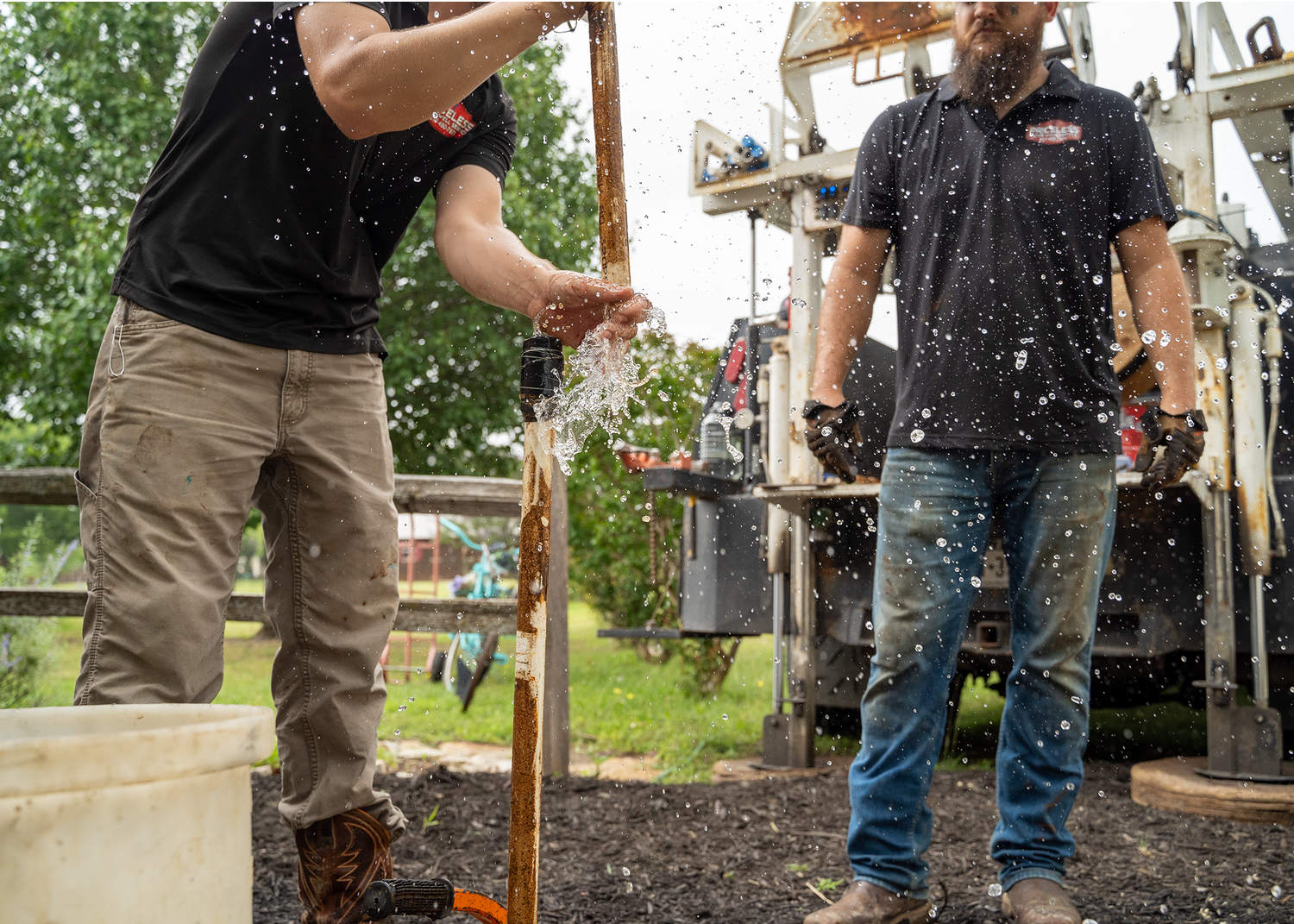Homeowners who rely on a well for water need to take good care of their well, especially during the winter months. When the temperatures drop and water freezes, a well system can experience many issues. It’s crucial to ensure that every part of the well is fully functional despite the low temperatures.
Fortunately, winterizing a well system isn’t too difficult. In this article, we’ll discuss why winterizing your well is important, how to do it, and how to ensure it’s done correctly.
What Does It Mean to Winterize a Water Well?
Winterizing a well involves taking steps to ensure the well will work properly during freezing temperatures. Since every part of the well could be exposed to very cold temperatures, it’s important to keep each part in tiptop shape.
Protecting exposed pipes, well pumps, and water supply system parts can keep them warm enough to avoid freezing and damage. When every part is properly insulated, you can rest easy knowing your system will work properly all winter.
Why Preventing Well & Pipe Freezing Is Important
When the temperatures drop below freezing, your pipes could burst, spilling water everywhere and causing more freezing. Even a small leak in a pipe can cause major water pressure issues and high water bills.
Frozen pipes and well pumps can cause your well to fail, cutting off your water supply. If the water supply still flows, contaminants can still enter the line and provide you with unhealthy water.
Proper well winterization can keep your well working correctly and prevent damage.
Understanding the Frost Line in Dallas, TX
The frost line is the expected depth at which groundwater will freeze. It’s crucial to have your well pipes installed below this line to prevent water from freezing within your piping system.
The frost line is different everywhere throughout the country, going deeper in colder climates. In Dallas, the depth is around 12 inches. When pipes are buried at least this deep, they’re much less likely to freeze.
How to Winterize Your Well & Outdoor Pipes
Winterizing your entire well system is vital for good water flow all winter long. Here are a few tips:
Insulating Well Components
Wrapping pump hoses, pressure tanks, and exposed pipes with insulation can protect them from the cold air. Be sure to use quality insulating products to wrap these parts of your well system and keep them in place all winter long.
Draining & Disconnecting Outdoor Water Sources
Drain and shut off hose bibs, irrigation systems, and outdoor plumbing before the temperatures drop. On cold nights, standing water could easily freeze, causing expansion, contraction, and damage to your system.
Installing Heat Tape or Heating Elements
Heat tape can be a great tool for preventing the freezing of exposed pipes. These electrical cords provide a low level of heat right to the outside of your pipes, keeping them warm enough to avoid freezing.
Running Water During Freezing Temperatures
On the coldest nights, allow faucets to drip to keep the water flowing through the pipe. This helps protect the piping system from the well to the faucet.
These are just a few ways to winterize your pipes and well system in Dallas. Be sure to work with professional plumbers to ensure your pipes are completely protected.
Well Pump Repair & Winter Maintenance Services
The team at Priceless Water Wells offers comprehensive winter maintenance services and well pump repair in Dallas and the surrounding region. If your system shows signs of damage, contact our team. We’ll inspect it, perform the repairs, and winterize your well.
Take good care of your well system by working with the area’s best plumbing team.
Schedule well maintenance now before the freezing temperatures hit.




